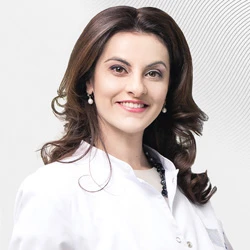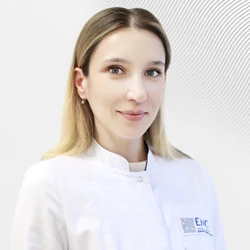Urticaria: symptoms, diagnosis, and treatment
Urticaria is manifested by inflammatory itchy skin rashes and/or angioedema (swelling of the deep layers of the skin or mucous membranes), which most often regress within 24 hours. Recurrent angioedema is observed in 33-67% of patients with urticaria. In 15% of cases, angioedema can occur in isolation, without being accompanied by skin rashes.
There are acute (lasting less than 6 weeks) and chronic (lasting more than 6 weeks) forms of urticaria, as well as its various varieties: cold, thermal, aquagenic (in contact with water), pressure urticaria, spontaneous dermographism, etc.
Acute urticaria is more often caused by medications (antibiotics, analgesics, sulfonamide preparations, B vitamins, etc.), food products (most often nuts, fish, seafood, etc.), infections or insect bites.
Chronic urticaria usually develops against a background of prolonged sensitization. Thus, 20-30% of all cases of acute urticaria, 91% of which are caused by infection, become chronic. Relapses of the disease, characterized by the appearance of blisters on various parts of the skin, are followed by remissions of varying duration. Often, the painful itching associated with the disease can be accompanied by insomnia, neurotic disorders.
Most studies indicate that women suffer from urticaria twice as often as men, with the peak incidence occurring between the ages of 20 and 40, i.e. during the most active and important period for a working person. According to research in Germany, the disease is more common among people with a high socio-economic level and residents of large cities.
The causes of chronic urticaria can be various factors: inhalation and food allergens, infections of the gastrointestinal tract, urinary system, helminthic and parasitic infestations, systemic diseases, thyroid pathology, etc. Currently, international standards for the diagnosis of various forms of urticaria have been developed, which are used by doctors at the European Medical Center. It should be noted, however, that despite significant medical progress in this area, the cause of urticaria is not always possible to determine.
The success of urticaria treatment is mainly determined by a well-conducted examination. Diagnosis and treatment are aimed at identifying and removing the cause of urticaria. Thus, when identifying provoking factors (for example, food products), it is necessary to exclude them from the diet, in the presence of infection, for example, Helicobacter pylori, a course of antibiotic therapy, in case of thyroid pathology, appropriate correction of its function, etc. Stepwise urticaria treatment schemes have been developed and are effectively used.
Thus, the problem of urticaria is extremely urgent, as it significantly reduces the quality of life. The European Medical Center has the latest methods for the diagnosis and treatment of allergic diseases, including urticaria, which allows us to provide high-quality effective care to our patients.
Why the EMC
The first and only clinic in Russia, created in the image of the world's leading clinics
EMC is a multidisciplinary center offering patients a high level of medical services and a personalized approach
Worldwide recognition and awards
 Learn more
Learn more
Worldwide recognition and awards
 Certificates and licenses
Certificates and licenses
Make an appointment for a consultation
Specify your contacts and we will contact you to clarify the details
Reviews
and new products of the EMC


.webp)
.webp)
.webp)







